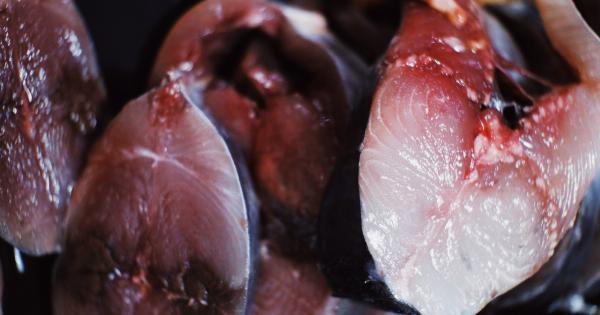There are few things as alarming as suddenly tasting blood in your mouth. Whether it’s a metallic or salty taste, it can be a cause for concern, and it’s important to understand what’s happening so you can take appropriate action.
Here are some possible explanations for why you might be tasting blood in your mouth:.
Cut or Irritation in Your Mouth
The most common reason for tasting blood in your mouth is a cut or irritation in your mouth. This could be a cut on your tongue, gums, or the inside of your cheek.
It could also be an irritation from a sharp edge on a tooth or a piece of food that has scratched the inside of your mouth. While these cuts or irritations are often minor and heal on their own, you should keep an eye on them to make sure they don’t become infected.
Gum Disease
Gum disease, also known as periodontal disease, is a common condition that affects the gums and bones that support your teeth. When your gums become inflamed, they can bleed easily, which can cause a metallic taste in your mouth.
Other symptoms of gum disease include red, swollen, or tender gums, bad breath, and loose teeth. If you think you might have gum disease, it’s important to see a dentist as soon as possible to prevent further damage.
Nosebleed
Sometimes, a nosebleed can cause blood to drip down the back of your throat, which can cause a metallic taste in your mouth. If you have a nosebleed, it’s important to lean forward and pinch your nostrils together to stop the bleeding.
You should also avoid blowing your nose or picking at any blood clots that form in your nose.
Medications
There are several medications that can cause a metallic taste in your mouth as a side effect. These include antibiotics, blood pressure medications, and certain antidepressants.
If you think your medication might be causing the problem, talk to your doctor to see if there is an alternative medication you can try.
Dry Mouth
If your mouth is dry, it can cause a metallic taste in your mouth. This is because saliva helps to wash away any bacteria or food particles that might be causing the taste.
If you have a dry mouth, you may also experience a sticky feeling in your mouth, cracked lips, and difficulty chewing or swallowing. Drinking plenty of water and chewing sugar-free gum can help increase saliva production and alleviate the symptoms of dry mouth.
Nerve Damage
In rare cases, nerve damage can cause a metallic taste in your mouth. This can happen if you have had surgery or trauma to your head, neck, or mouth.
Other symptoms of nerve damage may include numbness or tingling in your face or mouth, difficulty speaking, and drooling. If you think you might have nerve damage, it’s important to see a doctor or dentist as soon as possible.
Sinus Infection
If you have a sinus infection, you may experience a metallic taste in your mouth. This is because the mucus in your sinuses can drip down the back of your throat and cause an unpleasant taste.
Other symptoms of a sinus infection include stuffy or runny nose, headache, and facial pain or pressure. If you think you might have a sinus infection, talk to your doctor about treatment options.
Allergies
Some people may experience a metallic taste in their mouth as a symptom of an allergy. This could be an allergy to food, medications, or something in the environment, such as pollen or dust.
Other symptoms of an allergy may include sneezing, coughing, itching, and hives. If you think you might have an allergy, talk to your doctor about allergy testing and treatment options.
Oral Cancer
In rare cases, a metallic taste in your mouth could be a symptom of oral cancer. Other symptoms may include a sore throat, difficulty swallowing, a lump in your mouth, and unexplained weight loss.
While oral cancer is rare, it’s important to see a dentist or doctor if you have any of these symptoms.
Conclusion
Tasting blood in your mouth can be a scary experience, but it’s important to remember that there are many possible causes, ranging from minor irritations to more serious conditions.
If you’re concerned about a metallic taste in your mouth, it’s always a good idea to talk to your doctor or dentist to get a proper diagnosis and treatment.





























